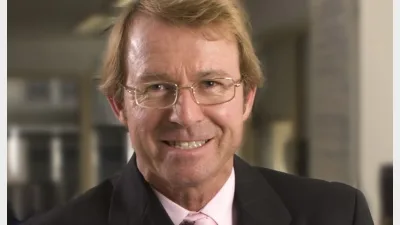Howarth highlights need to scrutinise super boards amid CFMEU scandal



The close affiliation of industry funds and unions, such as Cbus with the troubled Construction, Forestry and Maritime Employees Union (CFMEU), warrants a close look at “vested interests” that could impact member outcomes, according to shadow assistant treasurer Luke Howarth.
The CFMEU currently faces allegations of criminal ties, including thuggery, kickbacks and links to organised crime, and has been referred for investigation by a number of agencies, including the Fair Work Commission and the Australian Federal Police.
Speaking at a Financial Services Council event in Sydney on Wednesday, Howarth said: “The issue is, whatever way you look at it, there’s vested interests with the Labor Party, the unions and industry super, and what’s been exposed in the last week or so at the CFMEU in Victoria, and other parts of the world, and their relationship with Cbus – it’s not right, in some regards, because at the end of the day, superannuation is there for members.
“Their money needs to be spent wisely. It’s to benefit members and there should be independent directors, like there is in every other superannuation body, ensuring that they want the best outcome for members.”
Presently, three CFMEU officials sit on the board of Cbus, including the president of the union’s NSW divisional branch and its former national construction secretary.
The rest of the Cbus board comprises directors from other employer organisations and unions like Master Builders Association and the Australian Workers’ Union, and two independent directors – former treasurer and current national president of the Australian Labor Party, Wayne Swan, and former RBA official, John Edwards.
The shadow assistant treasurer continued that he was “hopeful” of more regulatory involvement in this issue when questioned on whether regulators could be doing more at this time.
This issue would be something on the Coalition’s agenda if it were to be elected, he added.
“[Opposition Leader Peter Dutton has] been very clear that the CFMEU needs to be deregistered and the regulators should be looking at some of what’s going on there, where you’ve got CFMEU people sitting on the board of Cbus and bragging that they’ve got footholds in there and so forth,” Howarth said, alluding to recent reports of a CFMEU official who allegedly bragged about their ability to influence construction project contracts due to their influence with members of the $94 billion fund.
The single official does not sit on the Cbus board and no Cbus board members have been the subject of any allegations.
Cbus CEO Kristian Fok has previously addressed concerns of board governance at the fund, reiterating it is a highly regulated financial institution with a key focus on protecting and growing the retirement savings of its over 900,000 members.
In a statement last week, he said Cbus, the default super fund for the construction industry, “condemns any criminal activity in the building and construction industry” and supports the efforts of governments, law enforcement and union organisations to eradicate any such criminal activity.
“Allegations relating to subcontracting arrangements on a recent Sydney building project are the subject of criminal proceedings, and we are not able to and will not comment on them,” Fok said.
“Cbus Property undertakes a detailed process on each development site to appoint an independent contractor to manage its construction projects. The independent contractor enters into agreements with all subcontractors and suppliers. Subcontractors on all sites are appointed by the contractor, not Cbus Property.”
The CEO maintained Cbus has good governance processes around its board and has met all its legal and regulatory obligations with respect to director appointments.
“Our independent chair and our directors, who include independent, union and employer group representatives, are bound by law to act in members’ best financial interests. This equal representative trustee model has contributed to the long-term success of our fund,” he said.
“It has served our members well in the past and continues to do so.”
Unpacking union links
At the industry event this week, Howarth explained that, as shadow minister, he is “not against” industry super funds. Instead, he is merely calling for a “fair playing field” and for funds to remain independent.
He observed there has been a trend of industry super funds allegedly sponsoring union events “to the tune of millions of dollars” and categorising these payments “under advertising”.
“Is that really in the best interest of members?” he said.
“The industry funds would say, ‘Oh, well, it’s legitimate money’, it’s for sponsorship and it’s to promote Cbus or whatever the industry fund is. But the reality is … that money ends up running against Liberal National Party candidates. That’s the truth of it, whatever way you look at it.”
Liberal senator Andrew Bragg, too, has previously been vocal about the need to investigate payments between super funds and unions, noting Cbus made payments to the CFMEU, as per its financial year 2022–23 disclosures, which are believed to be over $1 million.
He went a step further to call for the fund, which has committed up to half a billion dollars to support the construction of affordable housing through Labor’s Housing Australia Future Fund (HAFF), to be entirely axed from the project.
“The HAFF should not be doing business with a disgraced union and their affiliate super fund,” Bragg said.
Recommended for you
The International Monetary Fund (IMF) has issued a sobering assessment of the global economic landscape in its latest World Economic Outlook, dramatically revised after Donald Trump’s 2 April announcement of sweeping tariff measures.
Growth from the listed company’s key businesses has propelled Generational Development Group to new milestones in the three months to 31 March.
Sharemarkets might have been rallying on the back of central banks’ progress in the inflation fight, if not for Donald Trump’s escalating trade tensions and renewed attacks on the US Federal Reserve, according to AMP’s chief economist Shane Oliver.
Super industry advocates are calling on all parties to prioritise stopping abusers from getting access to their victims’ super.













